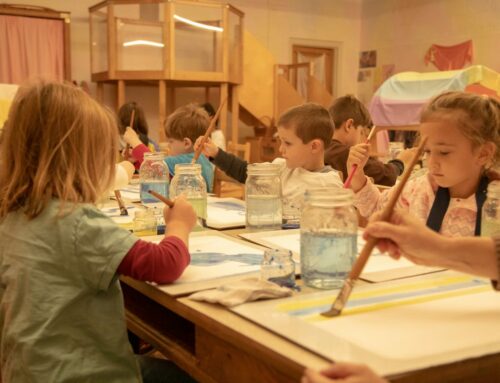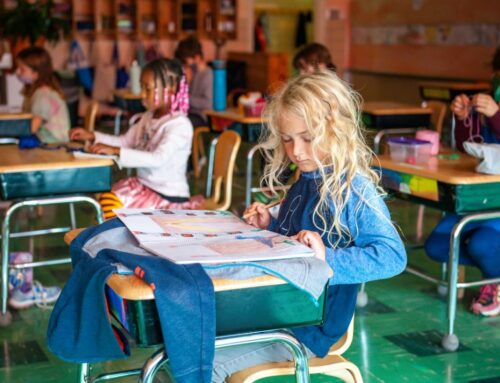When choosing schools, parents look at curriculum, class size, recess time, homework policies, and many other details of their child’s future days in the classroom. Another factor many consider, for good reason, is the school community.
The community is not only the heart of a school, but also its head, so to speak. Because while coming together to volunteer and attend festivities and class meetings may seem ancillary to academics, research reveals that it is, in fact, a primary contributor to student success.
The Nellie Mae Education Foundation meta analysis of 35 studies done on the relationship between community and parental involvement and student success found that vibrant, engaged school communities help children with motivation, behavior, social emotional learning and academics.
The article, Creating a School Community, in Education Leadership magazine highlights specifics in research that support this finding, while also noting that elementary schools with strong communities benefit a student over the long term.
Author of the article and education researcher, Dr. Eric Schaps, says: “These benefits are often lasting. Researchers have found that the positive effects of certain community-building programs for elementary schools persist through middle and high school.”
Dr. Schpas points to four specific ways that schools can enrich their communities including holding regular class meetings; incorporating buddy programs between older and younger students; engaging parents in home activities that purposefully support academics; and hosting schoolwide festivals and events that bring the community together.
Other studies have insights on the role parents specifically play in community building. The article, A New Wave of Evidence: The Impact of School, Family, and Community Connections on Student Achievement, concludes that parent and family involvement in a school strongly influences student success no matter the parents education level, income or race/ethnicity.
A recent study from the University of Missouri found similar results: “Researchers found that children whose parents were identified by teachers as more positively involved had higher levels of prosocial behaviors and more academic success. This demonstrates that teachers and parents who work together to empower students could help improve student performance.”
Susan M. Sheridan, Ph.D., Early Learning Network Lead Director at the Nebraska Center for Research on Children, Youth, Families & Schools, also came to that conclusion in her article, Establishing Healthy Parent-teacher Relationships for Early Learning Success.
Dr. Sheridan says, “When a partnership approach between parents and teachers is evident, children’s work habits, attitudes about school and grades improve.” She adds that, “Partnerships are most powerful when they include three main components: communication, consistency and collaboration.”
It is for this multitude of reasons that we encourage the families at Spring Garden Waldorf School to play an influential part of our school community. We welcome you to volunteer as often as time will allow, attend our class meetings and parent-teacher conferences, come and celebrate with us at our many festivals and gatherings, be a part of our parent council meetings and get togethers on third Thursdays, and remember that our doors (while secured for student safety) are always open for questions and conversation.




